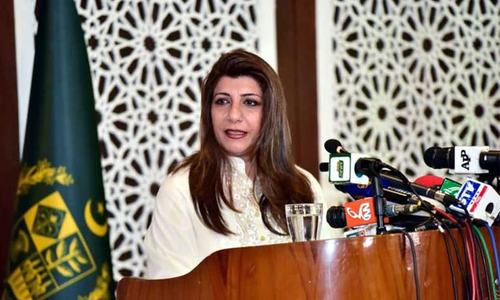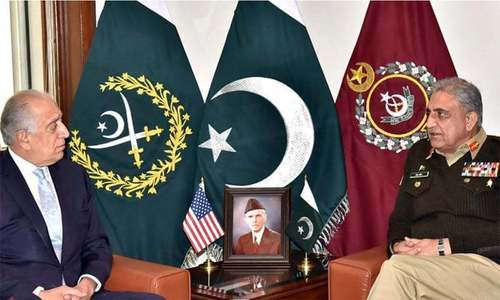Pakistan helped construct roadmap for US-Taliban peace deal, says FM Qureshi

Minister for Foreign Affairs Shah Mahmood Qureshi said on Saturday that Pakistan was closely involved in the process that led to the announcement of the upcoming peace deal between the United States and Afghanistan.
Calling the announcement of the peace deal a “historic breakthrough”, Qureshi said Pakistan had helped in constructing a roadmap for peace in Afghanistan.
“When US Special Representative for Afghanistan Reconciliation Zalmay Khalilzad visited Islamabad recently, both the prime minister and I held detailed meetings with him regarding the peace process. We constructed a roadmap to peace,” said Qureshi.
“I also told Khalilzad that the US and its allies around the region must remain wary of certain elements who benefit from continued fighting [in Afghanistan]. I warned him that these elements are bent on destroying the progress of our peace efforts,” Qureshi said.
In a statement released by the Foreign Office, Qureshi pointed out that the Afghan peace process was a complex one and that there was no military solution to the conflict.
“The world must understand that the solution to Afghan conflict will only come through a political settlement based on diplomatic negotiations,” the foreign minister said.
He also noted in his statement that when US Secretary of State Mike Pompeo came to Pakistan for his maiden visit last year, relations between the two countries were at its lowest ebb.
“Pompeo told me that the pathway to fixing relations between Pakistan and US came through Kabul. Now I would like to remind him that we have fulfilled all our promises. Not only did we build a peace team but we also played our role in ensuring that the negotiations were successful,” said Qureshi.
The foreign minister said that the Afghan government should think about the future of its country and double its efforts to restore peace. Qureshi also urged the Afghan government to shun partisan domestic politics to ensure lasting peace in the country.
“The deal will be signed in the presence of Pakistan because it was impossible for the deal to come through without our efforts. After February, we will try to build a delegation to promote intra-Afghan peace process and we have also decided when and how those talks will take place. Pakistan has played its role in the peace process with wholeheartedness and honesty and it is now incumbent upon the Afghan government to do the same,” Qureshi said.
FM Qureshi added it was not easy to bring Taliban to the table for negotiations, “Which is why the entire world, including the US, is appreciating Pakistan’s role in the Afghan peace process.”
“The world knows that the two sides have been fighting for over 19 years. After US President Donald Trump cancelled the peace process in a single tweet after a death [of a US soldier], it was Pakistan who convinced the US to restart negotiations.”
On Friday, the US and the Taliban announced they were set to sign a historic agreement in Doha, Qatar on the 29th of February, that would pave the way to ending America’s longest war.
The announcement came hours after Afghanistan said a week-long partial truce across the country would kick off this weekend. If the partial truce goes ahead, it would mark a historic step in more than 18 years of gruelling conflict in Afghanistan.
The US has been in talks with the Taliban for more than a year to secure a deal in which it would pull out thousands of troops in return for Taliban security guarantees and commitments.
A reduction in violence would show the Taliban can control their forces and demonstrate good faith ahead of any signing, which would see the Pentagon withdraw about half of the 12,000-13,000 troops currently in Afghanistan.
The US and the Taliban have been tantalisingly close to a deal before, only to see President Donald Trump nix it in September of last year at the 11th hour amid continued insurgent violence.













































